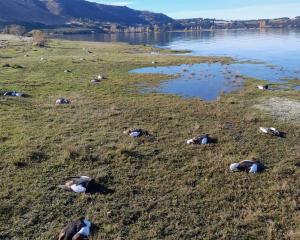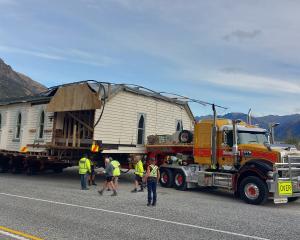But the pressure on southerners to do the right thing will be greater than ever when the region shifts to Covid-19 Alert Level 3 — and local government, businesses and schools say they have yet to fully understand what an easing of restrictions could mean.
Prime Minister Jacinda Ardern yesterday outlined what an end to Level 4 would look like.
It would not, she said, be a return to normality.
With 55% (770) of New Zealand’s 1401 cases of Covid-19 now recovered (in the South, 61%, or 130, of 213 cases have recovered) and the expected peak of cases now passed, calls for reopening aspects of society — and the economy — have increased.
"Keep a note of where you have been, when you have been there, and who with — it will help if we ever find ourselves contacting you because of a potential Covid case. Small changes like this will make the world of difference: there is extra risk and a high level of trust and responsibility that comes at Level 3 if and when we move to it," Ms Ardern said.
"When we get there, we want to stay there — in fact Treasury modelling tells us that we are better off in the longer term to stay in Levels 4 and 3 a bit longer now and defeat the virus rather than moving too quickly and having to move backwards and forwards between the levels or stay in them longer overall."
Working from home would remain the norm, but the forestry and construction sectors could expect a return to workplaces if social distancing and proper hygiene practices were followed."The same applies for people who work in people’s homes, like furniture removal, electricians and plumbers — you can return to work, but keep your distance from your customers," Ms Ardern said,
Bars, restaurants, cafes, malls and retail stores would need to keep their doors closed to the public but deliveries and online shopping like "click and-collect" would be able to resume.
"For any retailer out there what I’d say is remember the rule: ‘use an app, use online, use the phone, use the car, but it cannot be face-to-face’."
Fraser Brothers co-owner Mark Fraser — who operates Dunedin venues Mac’s Brewbar Stuart St, Nova cafe and Jizo and employs about 75 people — said he was "slightly surprised they are enabling drive-through and so on".
Taking up a delivery option now would be tough for a business like his, which did not have it on offer before lockdown, he said.
Otago Chamber of Commerce chief executive Dougal McGowan said businesses with questions about opening should get in touch with the chamber.
Enterprise Dunedin chief executive John Christie said it was too early to say how many workers would go back to work in the city under Level 3.
Early childhood centres and schools would reopen for children up to year 10 whose parents were back at work.
Otago Primary Principals’ Association president Shelley Wilde said schools were waiting for more specific information about Level 3.
Otago Secondary Principals’ Association president Linda Miller said parents would have to tell schools if pupils were returning so they could manage a "skeleton staff".
Tertiary education would largely remain distance-based.
As more workers were on the road the "keep it local" directive would shift to "keep it regional", Ms Ardern said.
Recreation would remain low-risk, local and non-motorised.
Funerals, tangi and weddings would be allowed in a minimal form with no more than 10 people present at either.
Dunedin City Council chief executive Sue Bidrose said pools, libraries, museums and galleries would likely remain closed, but the council was working on whether services such as kerbside recycling could begin again at Level 3, as well as which construction projects might be able to restart.
Otago Regional Council chief executive Sarah Gardener said under Level 3 the council would reconsider "greater levels of field work" which were considered non-essential but could be done safely.
— Additional reporting Jacob McSweeny and John Lewis












